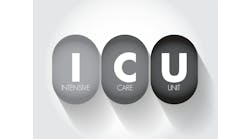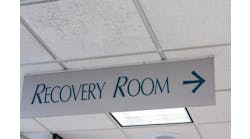Cochrane Launches Network of U.S. Institutions to Promote Evidence-Based Healthcare
Cochrane, a global nonprofit network of researchers, professionals, patients, caregivers and people interested in health, has officially launched its U.S. network made up of some of the country’s leading institutions in the research and practice of evidence-based medicine.
The new U.S. network joins Cochrane’s 70 existing geographic groups around the world. The Cochrane US Network will promote evidence-informed decision making in health care in the United States by supporting and training systematic review authors and users of Cochrane Reviews, as well as working with clinicians, professional associations, policymakers, patients, healthcare provider organizations and the media to encourage the dissemination and use of Cochrane evidence.
The Cochrane US Network is initially made up of the existing Cochrane US West Associate Center based at Oregon Health & Science University; three Cochrane Review Groups producing systematic reviews in neonatal health, fertility regulation and urological conditions; three U.S. satellites of Cochrane Review Groups focusing on eyes and vision, pregnancy and childbirth and musculoskeletal disease; one field specializing in complementary medicine; and 11 new affiliate institutions, including:
• AcademyHealth
• American College of Physicians
• Central Michigan University
• Cornell University
• Mayo Clinic Evidence-based Practice Center
• Penn Medicine Center for Evidence-based Practice
• RTI International – University of North Carolina Evidence-based Practice Center
• Texas Christian University
• University of Chicago Medicine
• University of Colorado Anschutz Medical Campus
• University of Maryland School of Medicine
Collectively, the network will focus on producing high-quality evidence on priority topics for the U.S.; providing training to systematic review authors and healthcare practitioners, policymakers and others in the interpretation of Cochrane Reviews; as well as raising general awareness of the Cochrane evidence available to make well-informed health and health care decisions. The new network will build on the work of the former U.S. Cochrane Center based at Johns Hopkins University in Baltimore.
“Many of these researchers and clinicians are leaders in the field, and I am excited by the expertise, innovation and knowledge they will bring to our mission of delivering trusted evidence into health policy and clinical decision-making,” said Mark Wilson, Cochrane CEO in a prepared statement. “The U.S. health system is the largest and most sophisticated in the world, yet suffers from huge inequalities in health outcomes and tremendous wastefulness. We believe a vibrant Cochrane Network promoting greater use of evidence showing what health interventions work and what don’t can make a real difference to this; and I hope that this new – already extensive – network will grow further and welcome many more partners in the years to come.”

